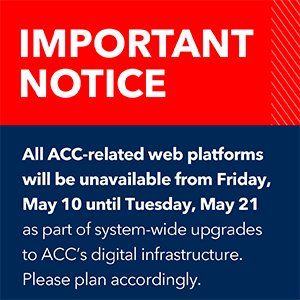Cognitive Effects During Hypothermic Circulatory Arrest
Quick Takes
- Among patients undergoing aortic arch surgery with hypothermic circulatory arrest (HCA) plus antegrade cerebral perfusion, low-moderate hypothermia (20.1-24.0°C) was noninferior to deep hypothermia (≤20.0°C) in global cognitive change score from baseline to 4 weeks, and there was no significant difference in the same cognitive change score between the deep hypothermia and high-moderate hypothermia group (24.1-28.0°C)..
- Regardless of temperature, patients who underwent HCA demonstrated significant postoperative reductions in cerebral gray matter volume, cortical thickness, and regional brain functional connectivity.
Study Questions:
What are the neurological effects of deep versus moderate hypothermia strategies during aortic arch surgery?
Methods:
In a prospective, randomized, single-blind, multicenter trial (GOT ICE) of patients undergoing aortic arch surgery with hypothermic circulatory arrest (HCA) plus antegrade cerebral perfusion conducted at four US referral aortic centers August 2016–December 2021, patients were randomized to one of three hypothermia groups: deep (DP, ≤20.0°C), low-moderate (LM, 20.1-24.0°C), and high-moderate (HM, 24.1-28.0°C). The primary outcome was composite global cognitive change score between baseline and 4 weeks postoperatively (with a negative change indicating interval cognitive decline). Intention-to-treat analysis was used to evaluate if: 1) LM was noninferior to DP on global cognitive change score, and 2) DP was superior to HM. Secondary outcomes were domain-specific cognitive change scores, neuroimaging findings, quality of life, and adverse events.
Results:
A total of 308 patients consented; of these, 282 met inclusion and were randomized, 273 completed surgery, and 251 completed the 4-week follow-up (DP, 85 [34%]; LM, 80 [34%]; HM, 86 [34%]). Mean global cognitive change score from baseline to 4 weeks in the LM group (0.004 ± 0.34) was noninferior to the DP group (0.05 ± 0.35); likewise, no significant difference was observed between DP and HM (-0.01 ± 0.36). The noninferiority of LM versus DP and the lack of difference between DP and HM remained for domain-specific cognitive change scores, except for structured verbal memory (which was better preserved in DP vs. HM, p = 0.036; and for which noninferiority of LM vs. DP was not established). There were no significant differences in structural or functional magnetic resonance brain imaging between groups postoperatively. However, regardless of temperature, patients who underwent HCA demonstrated significant reductions in cerebral gray matter volume, cortical thickness, and regional brain functional connectivity. The 30-day in-hospital mortality, major morbidity, and quality of life were not different between groups.
Conclusions:
LM hypothermia was noninferior to traditional DP hypothermia on global cognitive change 4 weeks after surgery, although secondary analyses found structured verbal memory was better preserved in the DP group. The authors conclude that the verbal memory differences in the LM and HM groups and the structural and functional connectivity reductions from baseline merit further investigation and suggest opportunities to further optimize brain perfusion during HCA.
Perspective:
Although deep hypothermia has been the standard for HCA during aortic arch surgery, there has been a trend at many centers toward lesser hypothermia with concomitant antegrade cerebral perfusion. This multicenter trial found no significant differences between deep versus moderate hypothermia strategies using antegrade cerebral perfusion in neurocognitive, neuroimaging, or clinical outcomes; suggesting noninferiority of low-moderate hypothermia compared to deep hypothermia. However, regardless of the temperature range of hypothermia, all three groups had significant postoperative reductions in cerebral gray matter volume, cortical thickness, and regional brain connectivity; reinforcing, as the authors note, the need for further efforts to optimize brain perfusion during HCA.
Clinical Topics: Cardiac Surgery, Invasive Cardiovascular Angiography and Intervention, Aortic Surgery
Keywords: Cardiac Surgical Procedures, Circulatory Arrest, Deep Hypothermia Induced
< Back to Listings

